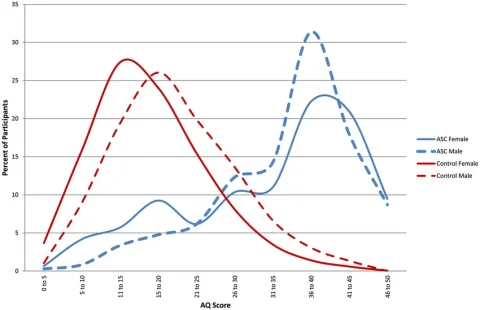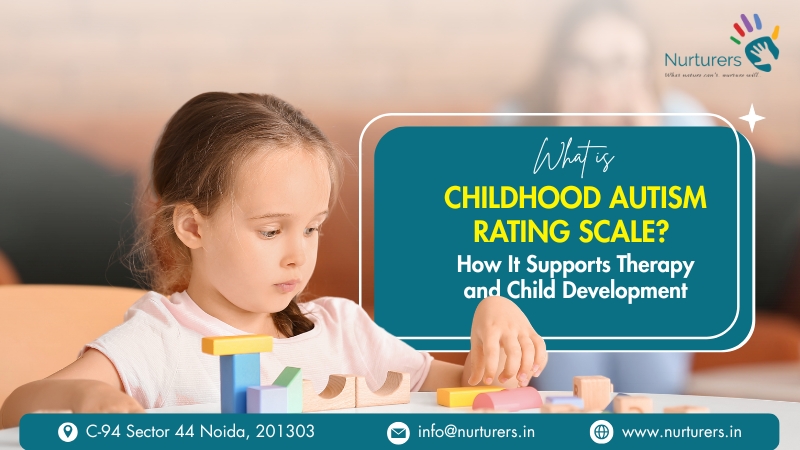The Childhood Autism Rating Scale (CARS) is a highly regarded tool used by professionals to assess the severity and characteristics of autism in children. Developed to provide a standardized and objective evaluation, CARS examines a wide range of behaviors, including social interaction, verbal and non-verbal communication, emotional responses, sensory sensitivities, sensory disorders, and daily living skills. By carefully observing and scoring these behaviors, professionals can gain a clear understanding of a child’s unique strengths, challenges, and developmental needs.
The significance of CARS extends beyond diagnosis. It serves as a foundational guide for designing personalized therapy programs and special education plans, helping therapists, educators, and caregivers implement interventions that are tailored to each child’s specific requirements. Regular assessments with CARS also allow tracking of a child’s progress over time, ensuring that therapy strategies and special education support remain effective and adaptive to their growth.
What is Childhood Autism Rating Scale?
The Childhood Autism Rating Scale (CARS) is a standardized behavioral assessment tool designed to help clinicians identify children with autism and determine the severity of their symptoms. Developed in the 1980s by Dr. Eric Schopler and colleagues, CARS is widely used in clinical, educational, and research settings worldwide.
CARS evaluates 15 key areas of behavior and development, including:
- Emotional response: How a child reacts to emotions in themselves and others.
- Verbal and nonverbal communication: Ability to use language, gestures, and facial expressions effectively.
- Social interaction: How the child engages with peers, adults, and family members.
- Adaptation to change: Ability to handle changes in routines or unexpected events.
- Sensory sensitivities: Responses to sounds, lights, textures, or other sensory stimuli.
Each category is rated on a scale from 1 to 4, with higher scores indicating more pronounced symptoms. The total score categorizes the child’s autism severity as mild, moderate, or severe, which helps guide therapy decisions.
How CARS is administered:
CARS is typically administered by a trained psychologist, pediatrician, or special educator. It involves direct observation of the child and interviews with parents or caregivers. The assessment usually takes about 30–60 minutes and provides a detailed behavioral profile.

Benefits of Using Childhood Autism Rating Scale
CARS is more than just a diagnostic tool—it is an essential part of planning effective interventions and tracking a child’s development. Here’s how it helps:
1. Early Identification of Autism
Early detection is critical in autism treatment. CARS helps identify children who may be on the autism spectrum at a younger age, allowing timely interventions that significantly improve outcomes.
2. Personalized Therapy Planning
Every child with autism is unique. By highlighting strengths and challenges across various behavioral domains, CARS enables therapists to create individualized therapy plans tailored to the child’s specific needs. This can include speech therapy, occupational therapy, social skills training, or sensory integration therapy.
3. Monitoring Progress and Effectiveness
CARS can be used repeatedly over time to track a child’s progress. Therapists can compare scores to evaluate the effectiveness of interventions and make adjustments if needed. This ensures therapy stays relevant and goal-oriented.
4. Guiding Multidisciplinary Support
Children with autism often benefit from a team approach involving psychologists, special educators, occupational therapists, and speech therapists. CARS provides a clear profile of the child’s abilities and challenges, making collaboration among professionals more effective.
5. Supporting Parents and Caregivers
CARS helps parents understand their child’s behavior and developmental needs. With this knowledge, parents can actively participate in therapy, reinforce learning at home, and advocate for the right resources in schools or therapy centers.

How CARS Supports Child Development?
The ultimate goal of using CARS is to enhance a child’s overall development. By identifying behavioral patterns and strengths, CARS supports:
- Communication Skills: Helps target interventions for speech and nonverbal communication, improving interaction with peers and family.
- Social Interaction: Enables development of social skills through structured activities and guided practice.
- Sensory Integration: Assists in designing strategies for children with sensory sensitivities, reducing anxiety and improving learning.
- Daily Living Skills: Tailored therapies help children develop independence in routine activities.
- Confidence and Emotional Well-being: Structured support and measurable progress improve self-esteem and reduce frustration.
Who Can Use CARS?
CARS can be used by:
- Psychologists and psychiatrists
- Special educators and therapists
- Pediatricians
- Researchers in autism studies
Parents can also request CARS assessments through professional therapy centers to understand their child’s needs better.
When is CARS Recommended?
CARS is particularly useful in:
- Children showing delays in communication or social skills
- Suspected autism cases where early intervention is being considered
- Monitoring progress in children already undergoing therapy
Early assessment can make a significant difference in long-term outcomes.

Why Parents Should Know About CARS
Awareness of tools like CARS is crucial for parents. Understanding their child’s autism profile helps parents:
- Recognize specific areas where support is needed
- Make informed decisions about therapy and education
- Collaborate effectively with therapists and schools
- Track improvements and celebrate milestones
At Nurturers, we believe parents are an integral part of the therapy process. Our team uses CARS assessments to create personalized therapy plans, ensuring children receive interventions that are evidence-based, goal-oriented, and supportive of holistic growth.

Common Questions About CARS
Q1: Is CARS a diagnostic tool?
While CARS is primarily an assessment scale, it is widely used to support autism diagnosis when combined with clinical judgment and other evaluations.
Q2: Can CARS be used multiple times?
Yes. Regular assessments help track a child’s development and the effectiveness of interventions.
Q3: Is CARS suitable for all ages?
CARS is designed for children, typically between 2 to 12 years old, but professionals may adapt it based on developmental needs.
Conclusion
The Childhood Autism Rating Scale (CARS) is a powerful tool that goes beyond diagnosis. It provides a roadmap for therapy, tracks developmental progress, and supports children in achieving their full potential. Early assessment using CARS allows therapists and parents to design targeted interventions that enhance communication, social skills, sensory processing, and daily functioning.
At Nurturers, we leverage CARS to provide personalized, multidisciplinary therapy that empowers children to thrive academically, socially, and emotionally. Understanding your child’s unique needs and acting on them early can make a transformative difference in their life.

